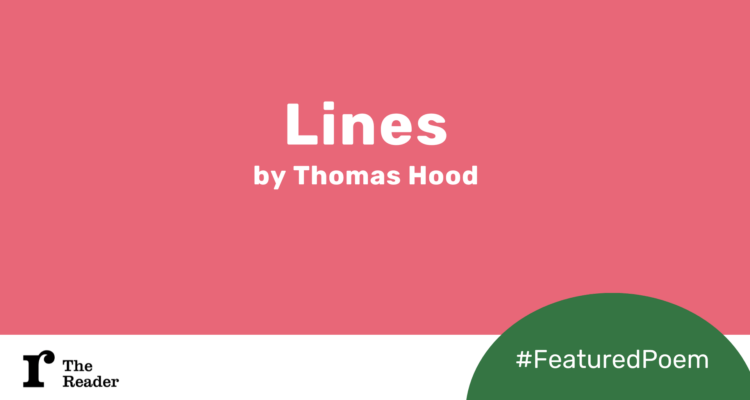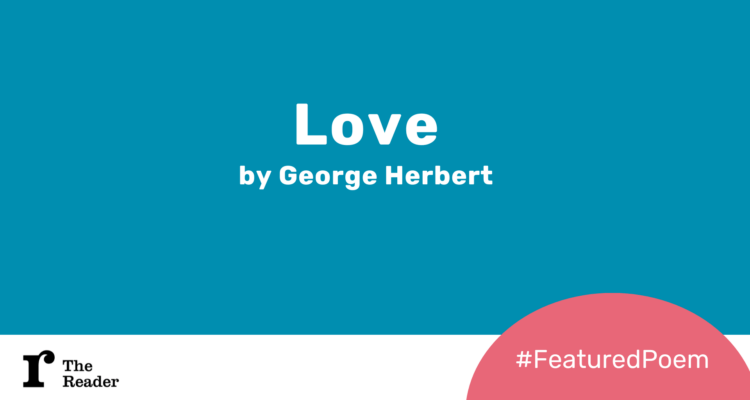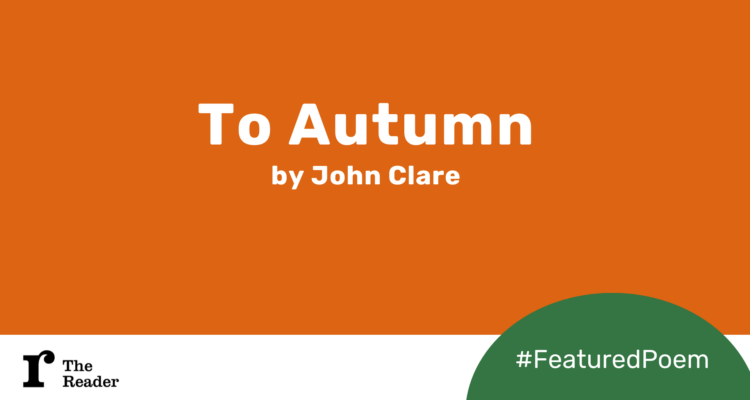Featured Poem: Evening Solace by Charlotte Brontë
For our first Featured Poem in November, we're reading Evening Solace by Charlotte Brontë with The Reader's London Hub Leader Erin Carlstrom.
The theme for our daily readings and recommendations in November is 'Light in the Dark' - download the full calendar here.
I wonder at the feeling behind ‘lonely musing’. The word ‘lonely’ holds the idea of being alone, something that can be both restorative, but also crushing—how is it that the two sit so closely together, yet feel in us so different?
Like the weight of feeling in the ‘lonely musing’, I’m also struck by the weight of pain in this poem. It almost feels like something to cherish in the language of ‘A tender grief that is not woe’—I wonder, is the heart’s ‘hidden treasure’ those memories that keep the grief from turning to woe? But there is also a longing for pain to subside: ‘Oh! when the heart is freshly bleeding, / How longs it for that time to be, / When, through the mist of years receding, / Its woes but live in reverie!’ I’m reminded of how the ‘heart’s best feelings’ may also be feelings that contain pain, and I marvel at our own resilience and complexity to have something that contains grief also be linked to something we call ‘best’.
But I think it’s the role of the nature, the non-human element in this poem that I am drawn to the most. I know for me personally that it’s the moments alone in nature, moments in ‘moonlight glimmer’ and ‘evening shade’ where I enter the space where stillness and connection to something outside of myself creates access to a ‘deeper impulse’ to ‘solemn thoughts’.
I’m reminded of a scene in Thomas Hardy’s Tess of the d’Urbervilles when Tess seeks refugee from her feelings of external and internal shame walking in the evening:
The only exercise that Tess took at this time was after dark; and it was then, when out in the woods, that she seemed least solitary. She knew how to hit to a hair’s-breadth that moment of evening when the light and the darkness are so evenly balanced that the constraint of day and the suspense of night neutralise each other, leaving absolute mental liberty. It is then that the plight of being alive becomes attenuated to its least possible dimensions.
Tess in this moment is feeling loneliness that is enforced by the judgements of others, yet on spending time in nature she is able to enter into ‘absolute mental liberty’. It is that which I feel in those moments of personal stillness, and which I feel in this poem as well. The moments that shine through our darker feelings of pain and loneliness to soften them through the revelation of hidden treasures of the heart.
Evening Solace
The human heart has hidden treasures,
In secret kept, in silence sealed;
The thoughts, the hopes, the dreams, the pleasures,
Whose charms were broken if revealed.
And days may pass in gay confusion,
And nights in rosy riot fly,
While, lost in Fame’s or Wealth’s illusion,
The memory of the Past may die.
But, there are hours of lonely musing,
Such as in evening silence come,
When, soft as birds their pinions closing,
The heart’s best feelings gather home.
Then in our souls there seems to languish
A tender grief that is not woe;
And thoughts that once wrung groans of anguish,
Now cause but some mild tears to flow.
And feelings, once as strong as passions,
Float softly back - a faded dream;
Our own sharp griefs and wild sensations,
The tale of others’ sufferings seem.
Oh ! when the heart is freshly bleeding,
How longs it for that time to be,
When, through the mist of years receding,
Its woes but live in reverie!
And it can dwell on moonlight glimmer,
On evening shade and loneliness;
And, while the sky grows dim and dimmer,
Feel no untold and strange distress-
Only a deeper impulse given
By lonely hour and darkened room,
To solemn thoughts that soar to heaven,
Seeking a life and world to come.
Charlotte Brontë
Share
Related Articles

Featured Poem: Lines by Thomas Hood
Our Featured Poem for February is 'Lines' by Thomas Hood, selected and read by Frances. Lines by Thomas Hood Let…

Featured Poem: Love by George Herbert
The Featured Poem for January is Love by George Herbert and is from the anthology Stressed, Unstressed and is read by…

Featured Poem: To Autumn
For November's Featured Poem, Julie is reading 'To Autumn' by John Clare To Autumn by John Clare Come, pensive…


